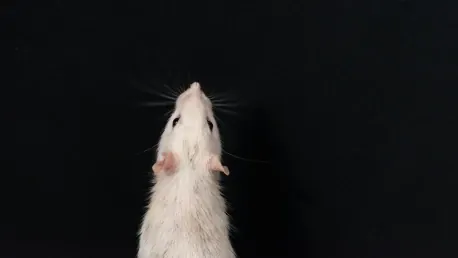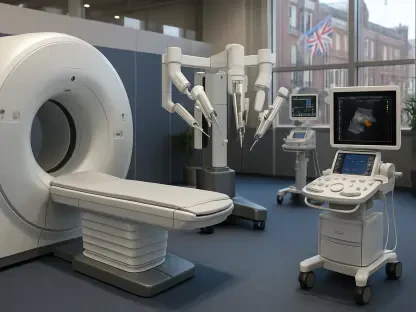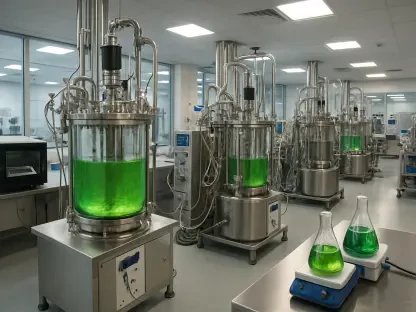The announcement from the U.S. Food and Drug Administration (FDA) to gradually phase out animal testing marks a revolutionary shift in drug development. This groundbreaking change aims to replace traditional testing methods with artificial intelligence (AI) and other advanced technologies, promising more humane, efficient, and cost-effective practices. The decision is poised to reshape the pharmaceutical industry, highlighting the dynamic evolution of drug evaluation procedures and the potential for expedited progress.
FDA’s New Directive
The FDA’s latest directive emphasizes a strong commitment to enhancing drug safety and accelerating the evaluation process. By integrating AI-driven computational models and conducting lab-based tests on cell lines and organoids, this approach seeks to significantly reduce the costs associated with research and development (R&D). The shift towards these innovative methods is not merely a technological advancement but also a humane initiative, ensuring the welfare of animals once traditionally used for testing.
This policy change signifies a paradigm shift aimed at streamlining the drug approval pipeline. The adoption of AI models facilitates quicker analysis and decision-making, reducing the time between drug development and market availability. Furthermore, this transition could lead to lower drug prices as companies cut down on the extensive costs of animal testing and associated logistics. With AI’s precise and predictive capabilities, drug testing procedures can become more refined, potentially improving the accuracy of toxicity predictions and overall drug safety.
Impact on Joinn Laboratories
Joinn Laboratories (China) Co. Ltd., a prominent provider of laboratory animals and clinical research services, has faced significant repercussions following the FDA’s announcement. The company’s stock prices plummeted, reflecting investor unease regarding the firm’s reliance on traditional animal testing methods. The sharp decline in Joinn’s stock underscores the vulnerabilities within its business model, which heavily depends on processes now subject to regulatory overhaul.
The immediate market reaction to the FDA’s directive was swift and severe. Investors demonstrated their concerns by rapidly offloading shares, causing a substantial drop in stock value. Joinn’s dependency on animal testing has made it particularly susceptible to the evolving landscape shaped by technological advancements and regulatory changes. The need for adaptation has never been more pressing, as the sustainability of Joinn’s current operations hangs in the balance amid these transformative industry trends.
Market Reactions and Financial Health
Prior to the FDA’s announcement, Joinn Laboratories was already grappling with financial challenges. The company’s revenue dropped significantly, leading to heightened costs and decreasing gross margins. The immediate market reaction accentuated these existing issues, with a drastic decline in net profit intensifying investor apprehension. This financial strain poses questions about Joinn’s ability to maintain its growth trajectory and navigate the shifting industry dynamics.
The broader implications of these financial struggles are profound, highlighting the necessity for strategic reassessment. Despite facing dwindling revenues, the increase in operational costs suggests inefficiencies that need to be addressed. The company’s substantial drop in net profit signals deeper systemic problems that could threaten its long-term viability. Joinn Laboratories must explore innovative strategies to adapt to the new regulatory environment and foster resilience amidst technological disruptions.
Potential Adaptation Strategies
In the wake of the FDA’s policy shift, Joinn Laboratories has yet to articulate a clear plan for integrating AI-based drug testing alternatives. The company’s recent statements have emphasized improvements in labor productivity and service quality through investment but have not outlined specific measures to transition to modern testing methodologies. This absence of a concrete adaptation strategy raises concerns about Joinn’s preparedness to meet the demands of the evolving drug development landscape.
Adapting to these changes will be critical for Joinn and similar companies reliant on animal testing. Embracing AI and other advanced techniques is not merely a matter of innovation but a necessity for long-term survival. The pharmaceutical industry is in the midst of significant evolution, and companies must proactively adopt new methodologies to remain relevant and competitive. Failure to pivot towards these cutting-edge technologies could jeopardize the future prospects of firms steadfastly clinging to outdated practices.
Industry Trends and Ethical Considerations
The pharmaceutical industry’s shift away from traditional animal testing aligns with broader scientific research trends aimed at enhancing efficiency and ethical standards. Incorporating AI-driven testing methodologies allows for quicker, more accurate results, reducing the ethical concerns associated with animal testing. This transition reflects an increasing emphasis on humane practices while maintaining rigorous safety and efficacy standards in drug development.
Ethical considerations are at the forefront of this movement, with growing public awareness and regulatory bodies advocating for reduced animal testing. AI technologies offer a viable solution by simulating biological processes and predicting drug interactions with a high degree of accuracy. This trend towards minimized animal testing aligns with global efforts to improve pharmaceutical practices and reinforce the commitment to humane and ethical treatment.
Looking Ahead
The FDA’s decision stands as a testament to the global shift in drug development practices. As AI and other advanced technologies are further integrated into the drug approval process, companies worldwide will need to adapt swiftly to remain competitive. Stakeholders will be closely monitoring how firms like Joinn Laboratories respond to these industry changes. Effective strategies to incorporate new methodologies will be paramount in determining their future market position.
The necessity for adaptation extends beyond individual companies, signifying a broader industry transformation. Firms must acknowledge the evolving landscape and strategize accordingly to maintain relevance. The long-term implications of the FDA’s policy shift will likely resonate globally, encouraging widespread adoption of advanced drug testing technologies and reinforcing the commitment to ethical standards in pharmaceutical research.
Broader Implications of Technological Disruption
The U.S. Food and Drug Administration (FDA) recently announced plans to gradually eliminate animal testing, a move that heralds a significant transformation in drug development. This revolutionary decision seeks to replace traditional testing methods with cutting-edge technologies like artificial intelligence (AI) and other advanced systems. This shift promises to not only be more humane but also more efficient and cost-effective. Consequently, the pharmaceutical industry is set to undergo a substantial overhaul. The adoption of AI for drug testing highlights the ongoing evolution of drug evaluation procedures. It also underscores the immense potential for advancement in the field, allowing for quicker and potentially safer drug development. This change is poised to foster a new era of innovation, streamlining processes while prioritizing ethical considerations. The FDA’s decision marks a crucial step forward, emphasizing the dynamic nature of the pharmaceutical industry and the exciting possibilities that lie ahead.









